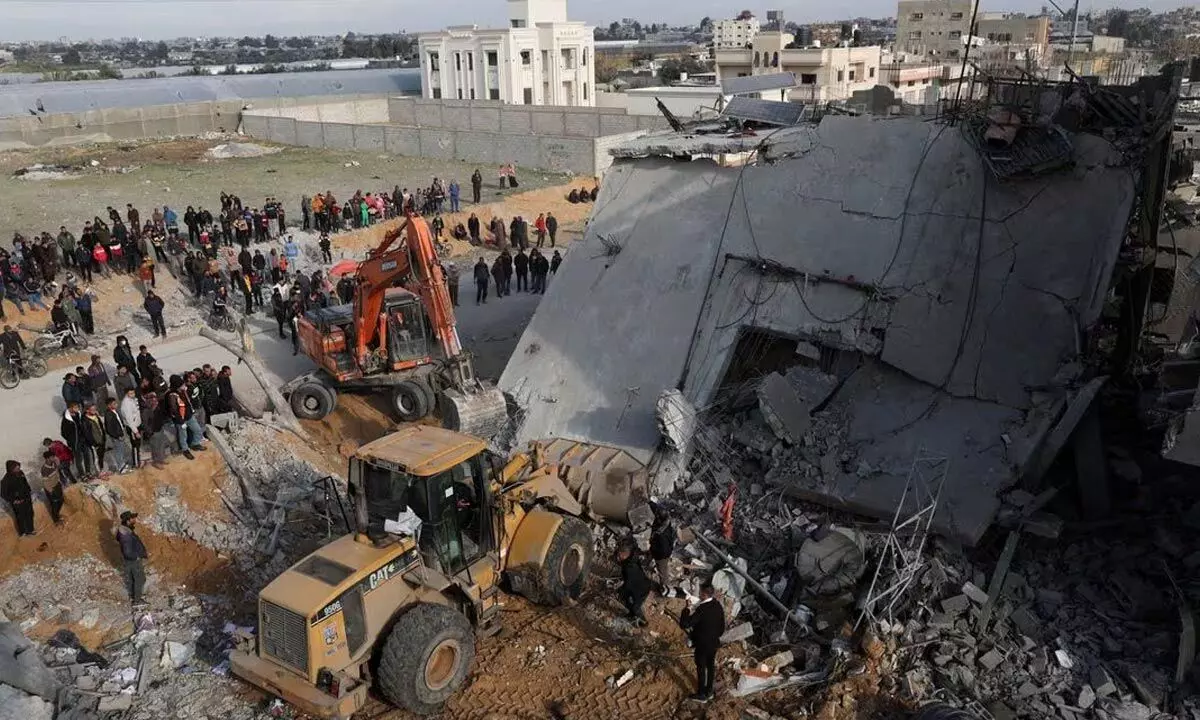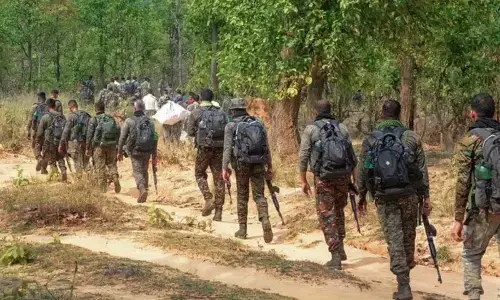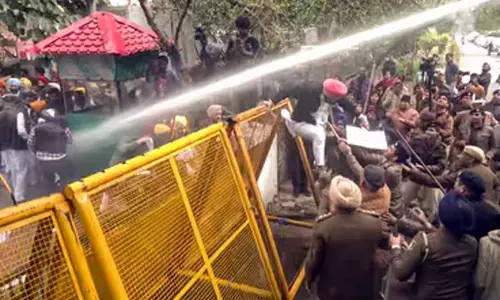Israel's six-week drive to hit Hamas in Rafah and scale back war
Share :

Israel expects to continue full-scale military operations in Gaza for another six to eight weeks as it prepares to mount a ground invasion of the enclave's southernmost city of Rafah, four officials familiar with the strategy said.
DOHA: Israel expects to continue full-scale military operations in Gaza for another six to eight weeks as it prepares to mount a ground invasion of the enclave's southernmost city of Rafah, four officials familiar with the strategy said.
Military chiefs believe they can significantly damage Hamas' remaining capabilities in that time, paving the way for a shift to a lower-intensity phase of targeted airstrikes and special forces operations, according to the two Israeli and two regional officials who asked to remain anonymous to speak freely.
There is little chance that Prime Minister Benjamin Netanyahu's government will heed international criticism to call off a Rafah ground assault, said Avi Melamed, a former Israeli intelligence official and a negotiator in the first and second Palestinian intifadas, or uprisings, in the 1980s and 2000s.
"Rafah is the last bastion of Hamas control and there remain battalions in Rafah which Israel must dismantle to achieve its goals in this war," he added.
Defense Minister Yoav Gallant said on Friday that Israel Defense Forces (IDF) were planning operations in Rafah targeting Hamas fighters, command centres and tunnels, though gave no timeline for the campaign. He stressed that "extraordinary measures" were being taken to avoid civilian casualties.
"There were 24 regional battalions in Gaza – we have dismantled 18 of them," he told a media briefing. "Now, Rafah is the next Hamas centre of gravity."
World leaders fear a humanitarian catastrophe.
Trapped between the two sworn enemies are more than a million Palestinian civilians crammed into the city on the Egyptian border, with nowhere left to run, after fleeing Israeli attacks that have laid waste to much of the enclave.
In a past week of high diplomatic tension, U.S. President Joe Biden phoned the Israeli leader twice to warn him against launching a military operation in Rafah without a credible plan to ensure the safety of civilians. Netanyahu himself said civilians would be allowed to leave the battle zone before the offensive, even as he vowed "complete victory".
The IDF hasn't explained how it will move more than a million people within the ruins of the enclave.
According to one Israeli security source and an international aid official, who asked not to be identified, Gazans could be screened to weed out any Hamas fighters before being sent northwards. A separate Israeli source said Israel could also build a floating jetty north of Rafah to enable international aid and hospital ships to arrive by sea.
Nonetheless, an Israeli defence official said Palestinians wouldn't be allowed to return to north Gaza en masse, leaving scrubland around Rafah as an option for makeshift tent cities. The regional officials also said it wouldn't be safe to move a large number of people into a northern zone with no power and running water which hasn't been cleared of unexploded ordinance.
Washington is sceptical Israel has made sufficient preparations for a secure civilian evacuation, several officials familiar with the conversations between the two governments said. Biden said on Friday he didn't expect a "massive" Israeli ground invasion to happen soon.
Furthermore, according to Hamas, the total victory promised by Netanyahu won't be quick or easy.
A Hamas official based in Qatar told Reuters that the group estimated it had lost 6,000 fighters during the four-month-old conflict, half the 12,000 Israel says it has killed.
Gaza's ruling group can keep fighting and is prepared for a long war in Rafah and Gaza, said the official, who requested anonymity.
"Netanyahu's options are difficult and ours are too. He can occupy Gaza but Hamas is still standing and fighting. He hasn't achieved his goals to kill the Hamas leadership or annihilate Hamas," he added.
'NO EMPTY SPACE IN RAFAH'
Hamas triggered the conflict on Oct. 7 last year when its fighters burst out of the Gaza Strip into southern Israel, killing 1,200 people and seizing 253 hostages. The surprise attack prompted a massive retaliatory Israeli bombardment and ground invasion that have killed more than 28,000 Palestinians.
Much of Gaza has been reduced to rubble by Israel. Fighting continues in the southern city of Khan Younis, with sporadic clashes still breaking out in northern areas supposedly cleared.
More than 85% of Gaza's 2.3 million inhabitants have been left homeless. Most of the displaced have sought shelter in Rafah, which had a pre-war population of about 300,000.
"There is no empty space in Rafah, over a million and half people are here. Does the world know that? A slaughter is going to take place if the tanks enter," said Emad Joudat, 55, who fled there with his family early in the war from Gaza City, where he ran a furniture business.
"I am in charge of a big family," said the father-of-five, who lives in a tent city with no food or water in Rafah. "I feel helpless because don't know where to go with them if Israel launches an invasion."
Egypt has sealed off its border to the enclave. Cairo has framed its opposition to the displacement of Palestinians from Gaza as part of wider Arab rejection of any repeat of the "Nakba", or "catastrophe", when 700,000 Palestinians fled or were forced from their homes during the 1948 war that accompanied Israel's creation.
Egypt is nonetheless preparing an area at the border that could accommodate Palestinians, as a contingency should an Israeli offensive into Rafah prompt an exodus across the frontier, three security sources in Egypt told Reuters, declining to be named due to the sensitivity of the matter.
The Egyptian government denied making any such preparations.
Israeli Defense Minister Gallant said Israel had no intention of evacuating Palestinian civilians to Egypt.
'PLEDGE TO SACRED VICTIMS'
Melamed, the former Israeli intelligence official and negotiator, said the only potential delay to the Israeli assault on Rafah could come should Hamas give ground in hostage negotiations and hand over the prisoners it took on Oct. 7.
"Even that would only delay the advance on Rafah unless it is coupled with the demilitarization of the city and surrender of the Hamas battalions there," he added.
A senior regional security official said Israel believed some Hamas commanders and hostages were in Rafah.
This month, after weeks of negotiations, Hamas proposed a ceasefire of 4-1/2 months during which it would free all Israeli hostages, Israel would withdraw its troops from Gaza and an agreement would be reached on an end to the war.
Netanyahu rejected the offer as "delusional". A new round of talks involving America, Egypt, Israel and Qatar on a truce ended without a breakthrough in Cairo on Tuesday.
Senior American officials see securing a deal to release the remaining hostages in exchange for an extended pause in the conflict as the best path to creating space for broader talks, the U.S. sources said. Yet they're concerned such a deal may not materialise in coming weeks and war will continue into the Muslim holy month of Ramadan in March and April, which could intensify global criticism of Israel's campaign, they added.
An overarching agreement to end the conflict appears remote.
Any attempt to form a post-war government in Gaza could only succeed if it has Hamas' approval, according to several sources in the region, including from the militant group and the Palestinian Authority, which was pushed out of Gaza by Hamas in 2007.
Yet something has to give.
Israel has vowed to wipe out Hamas. And the group's leader in Gaza, Yahya Sinwar, will fight to the death rather than surrender or go into exile, according to Hamas and regional officials.
Israel also remains opposed to any deal involving a permanent ceasefire or a Palestinian state, despite U.S. pressure and international outcry over civilian suffering in Gaza and the lack of progress to a lasting peace solution.
Since October, U.S. Secretary of State Antony Blinken has made five visits to the region. Last month, the State Department said Washington was "actively pursuing the establishment of an independent Palestinian state" with security guarantees for Israel and exploring options with partners in the region.
UK Foreign Secretary David Cameron also told lawmakers that Britain and its allies "will look at the issue of recognising a Palestinian state, including at the United Nations".
Israel, the U.S. and Britain haven't formally recognised Palestine, unlike nearly 140 other U.N. nations.
Yet for Netanyahu and many other Israeli officials, talk of a two-state solution amounts to a betrayal of the people killed on Oct. 7.
"I say clearly to anyone still stuck in October 6: We will never lend a hand to the creation of a Palestinian state," Israeli Culture Minister Miki Zohar said on social media last month. "This is our pledge to the sacred murder victims."
Reporting by Samia Nakhoul in Doha, Jonathan Saul in London and Humeyra Pamuk in Washington; Additional reporting by Dan Williams in Jerusalem, Nidal Al Mughrabi in Cairo, Andrew Hay in Doha and Jeff Mason in Washington; Editing by Pravin Char










